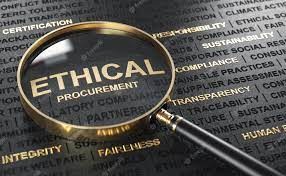

Ethical sourcing of vitamins is more than just a trend; it’s a crucial aspect of a healthy and sustainable future for both consumers and the planet. This article dives deep into the world of ethical sourcing, examining the principles and practices behind obtaining quality vitamins in a responsible manner. The ethical production of vitamins plays a critical role in protecting human health, while simultaneously minimizing negative impacts on the environment. Many consumers are becoming increasingly aware of the issues surrounding the production of everyday items, including vitamins, and are actively seeking alternatives with more sustainable methods. This article will explore the challenges and solutions associated with ensuring the ethical sourcing of vitamins, considering aspects from sustainable agriculture to fair manufacturing practices. We’ll also examine how consumers can play a role in promoting these practices. We’ll explore the critical issues and outline practical steps for consumers to make informed choices. This includes considerations regarding the impact on human health, the environment, and the social well-being of workers throughout the supply chain.
Understanding Ethical Sourcing
Defining Ethical Sourcing
Ethical sourcing of vitamins encompasses the entire lifecycle of a vitamin, from the raw materials to the final product. It considers the social and environmental impact of each step, ensuring fair labor practices, sustainable agriculture, and environmentally responsible manufacturing processes. Ethical sourcing goes beyond simply meeting legal requirements; it aims to promote long-term sustainability and minimize negative impacts across the entire supply chain. It encompasses issues like worker safety, fair wages, and working conditions, in addition to environmental concerns such as responsible resource use, reducing pollution, and preserving ecosystems. Numerous organizations are working toward increasing consumer awareness surrounding the issues of ethical sourcing of goods, especially concerning vitamins and nutritional supplements.
Sustainable Agriculture Practices
The Role of Sustainable Farming
Sustainable agriculture practices are vital for ethical sourcing of vitamins. These practices ensure the long-term viability of farmland and the protection of biodiversity. They involve methods such as crop rotation, integrated pest management, and conservation tillage, all of which help to maintain soil health and reduce reliance on harmful pesticides and fertilizers. The ethical sourcing of raw materials depends on the sustainable management of the agricultural resources from which they are derived. A 2022 report by the UN on sustainable agriculture highlights the urgent need for global action on this front. This means using practices that minimize environmental damage and promote long-term food security. These methods contribute to mitigating environmental impact and ensuring the long-term health of the land and the ecosystems involved.
Fair Manufacturing Practices
Ensuring Fair Labor Standards
Ethical manufacturing practices focus on fair labor standards, safe working conditions, and fair wages for workers involved in the production process. Companies committed to ethical sourcing ensure that their manufacturing processes respect human rights and the rights of workers involved throughout the supply chain. A key aspect of this involves ensuring that workers are paid a living wage, and that the working environment adheres to international safety standards, preventing workplace hazards. Many companies now disclose their supply chain information and manufacturing practices to instill more trust and transparency in their sourcing processes. This transparency allows consumers to make informed decisions based on the ethical sourcing practices of different brands.
Transparency and Traceability
Importance of Supply Chain Visibility
Transparency and traceability are critical components of ethical sourcing. A complete view of the supply chain, from the farm to the consumer, allows for verification of ethical practices at each step. Companies using transparent and traceable practices can demonstrate accountability and foster trust in the sourcing methods they employ. A crucial part of this transparency involves disclosing information on their source materials, and how their goods are produced. This information empowers consumers to make informed choices regarding the source, production methods, and ethical background of a product. This approach also assists consumers in evaluating which companies demonstrate a commitment to ethical practices compared to others.
The Impact on Consumers
Making Informed Choices
The ethical sourcing of vitamins directly impacts consumers by ensuring the quality and safety of the products they consume. Sustainable and responsible production methods contribute to a healthier environment and reduce the risk of negative impacts on human health and the environment. Consumers, becoming more aware of the origin of their products and their related impacts on the planet, can promote ethical practices by supporting companies that prioritize sustainability and fair treatment of workers. This is especially true given that consumer awareness is increasingly crucial for the future of the market.
How can consumers ensure they are purchasing ethically sourced vitamins?
Consumers can ensure they are purchasing ethically sourced vitamins by researching the sourcing practices of the companies. Look for certifications related to sustainable agriculture and fair labor practices, and pay attention to the company’s commitment to transparency. Supporting companies that prioritize ethical sourcing by making informed choices demonstrates commitment. Companies committed to ethical sourcing are keen to educate consumers about their methods, and these resources can be helpful in assessing the ethics of specific brands.
What are the benefits of purchasing ethically sourced vitamins?
Purchasing ethically sourced vitamins offers multiple benefits, not only for personal health but also for the planet and the community. Supporting companies committed to ethical sourcing fosters a healthier environment, promotes fair labor practices, and reduces negative environmental impacts. It also reinforces a more just and equitable supply chain. Making informed choices helps support companies that respect sustainability and equitable working conditions.
Frequently Asked Questions
What are the common ethical concerns regarding vitamins?
Ethical concerns regarding vitamins primarily focus on the environmental impact of production and the fair treatment of workers throughout the entire supply chain. Issues like unsustainable farming practices, pollution, and unsafe working conditions raise serious concerns. Transparency in sourcing and manufacturing processes is paramount to addressing these concerns. Consumers now have more opportunities than ever before to evaluate a brand’s ethical sourcing practices and choose the products they believe best support their values.
In conclusion, ethically sourced vitamins are crucial for ensuring a healthy future. By prioritizing sustainable practices and fair manufacturing, consumers can contribute to a more responsible and ethical supply chain. Choosing ethical options requires research and support of companies committed to transparency and environmental sustainability. By making conscious choices, consumers can promote the ethical sourcing of vitamins and contribute to a healthier planet and a more equitable industry. Explore more about sustainable vitamin choices and companies championing ethical sourcing, and start making a difference today!